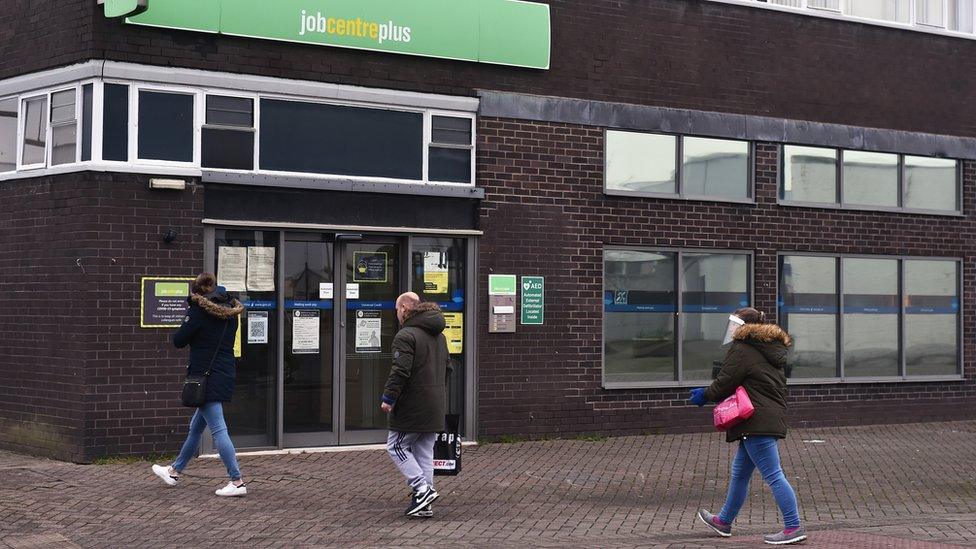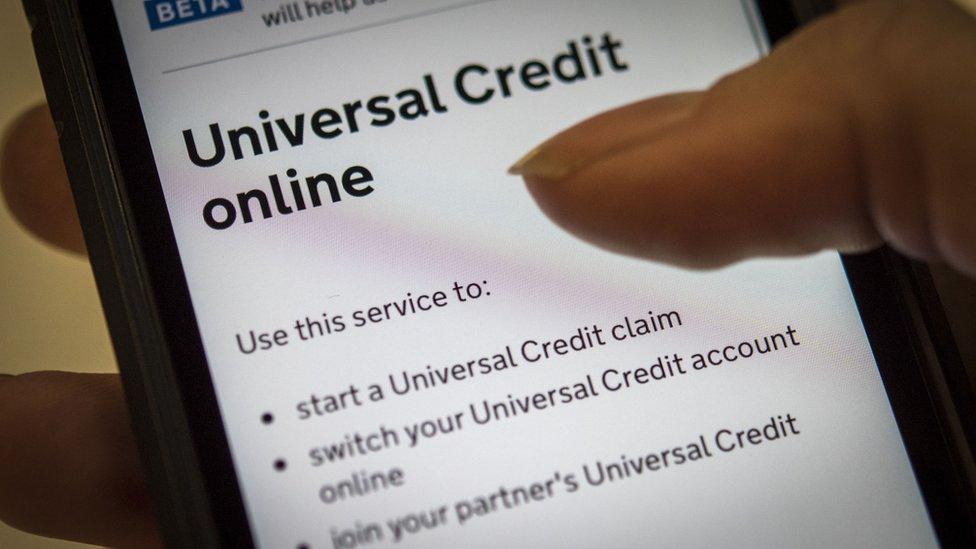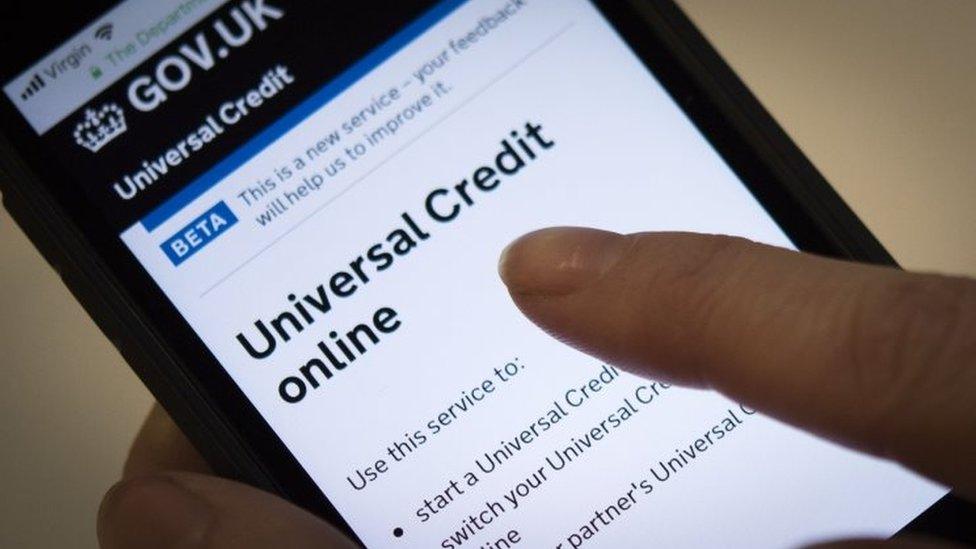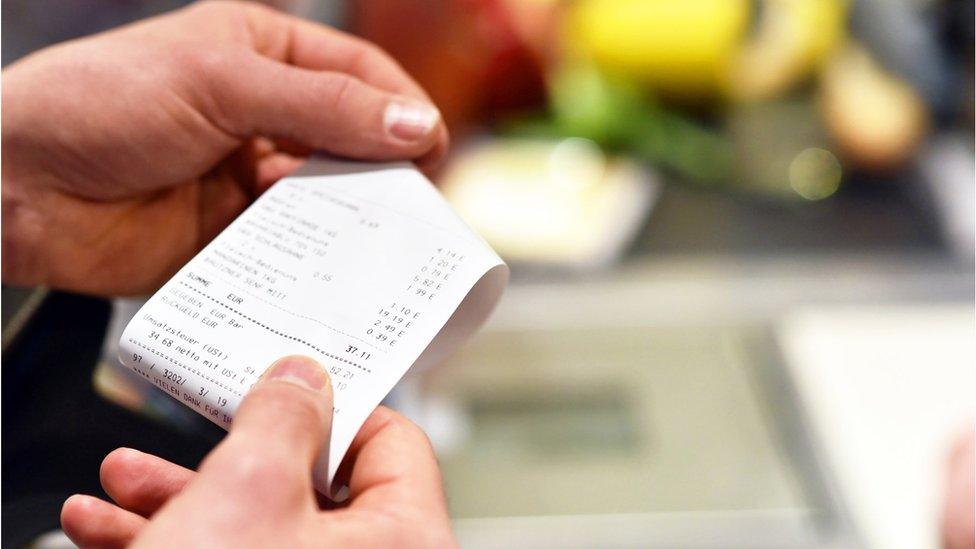Universal Credit reduction 'will hit Northern Ireland hard'
- Published

A number of organisations have been calling for the £20 Universal Credit uplift to be extended
Northern Ireland is going to be harder hit than other parts of the UK when the £20 uplift in Universal Credit comes to an end next month, a leading economist has said.
The number of people on Universal Credit doubled when lockdown first began in March 2020.
The latest figures show there were 134,070 claimants of Universal Credit in Northern Ireland in May 2021.
Universal Credit is a monthly payment for people of working age.
It replaced a host of previous benefits including income-based Jobseeker's Allowance, housing benefit, child tax credit and working tax credit.
A number of organisations have been calling for the £20 uplift to be extended, including the Resolution Foundation, a UK-based thinktank that does research on the living standards of lower income families.
'Wider economic effects'
Its chief economist Mike Brewer said: "The cut to Universal Credit is going to affect Northern Ireland harder than other parts of the UK which reflects the underlying population and number of families with children.
"We think 24% of working age families in Northern Ireland are going to lose out from the cut in Universal Credit - so almost one in four working age families.
"I think people often underappreciate quite how many families rely on universal credit for part of their income.
"The scale of Universal Credit and the number of families who depend on it means that you have to think about the wider economic effects as well as the impact on individual families.
"We don't think this is the right time to take that money out of the economy, it's worth £5bn in a full year so that is £5bn not being spent by low-income families so it's just too soon to take away this money.
'I'm living hand-to-mouth'
Of the 116,810 households in Northern Ireland claiming universal credit, almost one in three are single parents.
Megan Potts is a single mum living in Bangor, County Down, who has been on Universal Credit since May 2020.
She said: "There seems to be a perception that single parents are rolling in cash - I can promise that isn't the case. I have been a single parent for two-and-a-half years now and I have always been living hand to mouth through that time.
"It has always been the case that I am lucky if I make it from one end of the week to the other without going into my overdraft, I don't even eat every day at this point.
"People talk about the decision between heat and eat and it's real. I am now getting to experience that on a whole new level just trying to save money wherever I possibly can.
"Especially now because the cost of living is going up. I am watching my shopping bill growing month on month, even though I'm ordering all the same stuff, it's wild.
"Facing losing money in the middle of all of this is not easy. I just don't know how I'm going to make ends meet.
"I wish I could fix it by going out and getting a job, I know that's what a lot of people will say. I wish I could work I don't like being a benefit claimant but at the moment I can't access the healthcare that would allow me to get back to work."
The Department for Work and Pensions maintains there are no plans for the uplift in universal credit to be extended further.
A government spokesperson said: "As announced by the chancellor at the budget, the uplift to Universal Credit was always temporary.
"It was designed to help claimants through the economic shock and financial disruption of the toughest stages of the pandemic, and it has done so.
"Universal Credit will continue to provide vital support for those both in and out of work and it's right that the government should focus on our plan for jobs, supporting people back into work and supporting those already employed to progress and earn more."
Related topics
- Published31 August 2021

- Published26 August 2020

- Published30 August 2021
